My recent article explaining the dominance of the Eurodollar system sparked some interesting exchanges on X with prominent Bitcoin advocates.
The topic of debate was if Bitcoin was relevant to the discussion as something that is a likely candidate to replace the Eurodollar as the world reserve currency.
I repudiated this suggestion:
Bitcoin is not the kind of technology that could supplant the Eurodollar system as the world reserve currency, because for the majority of its users it's treated like an asset. No one really uses $BTC as money, even purchases made in BTC are using the dollar as the intermediary.
That is correct...bitcoin is store of value for now, but second layer solutions are changing that, e.g. Lightning.
Even with faster second layer solutions, the vast majority of people will still only ever buy it with the intent of selling it for a profit.
A fiat Eurodollar system replaced gold-backed currency because banking activities were constrained by the old system, it's hard to imagine them retreating back to a monetary system that constrains both them and governments.
It's hard to imagine our current elite doing so.
A new nationalist elite will. Bukele is doing it.
Why would a nationalist elite want to give up control of its monetary system to a global asset market and be at the whim of its fluctuations? Giving your currency over to BTC takes away bulk of monetary sovereignty - what if you need a stimulus program funded on deficit spending?
"Stimulus" from a pro bitcoin economy far outweighs the stimulus provided by money printing.
El Salvador can hardly keep up with the influx of talent and investment since adopting bitcoin.
But Bitcoin isn't its currency and still has little adoption, its an asset being traded for dollars that has more usability there, but that’s just the Eurodollar with an extra step. And it's not just stimulus: inflation, tax collection, money supply... why would a nationalist government surrender monetary sovereignty for an asset mostly foreign owned?
Saifedean Ammous (author of bestseller The Bitcoin Standard):
Not because they want to, for sure. It will keep appreciating while their fiat keeps depreciating. They can keep using their fiat & go poor & watch bitcoiners buy everything they own, or move to bitcoin & salvage their wealth. Just like hyperinflationary economies have moved to the dollar. Yes, initially people held the dollar and used hyperinflationary local fiat for transactions, but that state of affairs cannot last and it did NOT save the hyperinflationary fiat, which continued to lose value. Eventually, if you wanted to eat, you needed dollars. Same thing is happening to the dollar next to bitcoin.
Adoption is happening at both individual and institutional levels. While still small, BTC market cap surpassing $1 trillion is significant. Bukele's adoption in El Salvador is a case in point. As a dollarized nation, ES couldn't print its own currency.
For nationalist leaders with their own currency, the printing press obviously remains a critically valuable tool. But beyond the dollar and its proxies (G7 fiat currencies), there’s little to no external demand for the currencies of small nations.
It is in these nations interest to accumulate international bearer assets that can maintain their value. G7 liabilities are inadequate, both due to coming financial repression that must take place given the sovereign Debt/GDP levels of USA/Europe/Japan, but more importantly due to the counterparty risk associated with them.
The message to Iran, Russia, China, etc. was extremely clear after Russia's FX reserves were seized. Why would you buy the bonds of your adversaries while entering an increasingly multi-polar world order?
Default risk (implicit not explicit debt default, via inflation)+ seizure risk.
Re: Triffin dilemma- due to this reality, the dollar must continue to be debased to sustain the incumbent system and world order. Secondary and tertiary fiat currencies from smaller nations must subsequently debase to maintain export competitiveness among other things.
Savvy leaders like Bukele recognize the benefits of accumulating BTC with tax revenue and implementing favorable regulations such as making BTC legal tender (which eliminates cap gains taxes on its appreciation. Bukele's ES is mining bitcoin with geothermal energy from volcanoes. Why would oil rich nations place reserves in G7 paper or gold instead of a bearer asset energy currency?
Most bitcoin adopters are obviously bullish on Bitcoin’s price, but that’s secondary. The real conviction lies in the protocol, incentive structure, network effect, and the broader idea of decentralized sound monetary standard.
The game theory of absolute scarcity combined with the mining difficulty adjustment means the cost of producing new BTC is programmatically approaching infinity in terms of energy/compute (not an exaggeration). Meanwhile, fiat currency is minted at zero cost through private lending.
As a result, George Soros (breaking BOE) style speculative attacks (borrowing weak currencies, selling for strong) will happen with increasing frequency and size -in fact they are already happening now at the individual level and with some institutions. Eventually, this will happen at the nation state level, but unlike Soros it wont be a quick trade. Long dated fiat liabilities that introduce new fiat into circulation to purchase absolutely scarce BTC is how the most outrageously bullish price targets come to fruition.
Re: Bretton Woods, the shift from Bretton Woods as it originally was implemented to our current fiat-based system happened because of the inadequacies of gold, which despite its carrying value over time, it was completely useless as an international settlement medium. The current fiat standard, backed entirely by debt, evolved due to gold’s inefficiencies and trust based system. Bitcoin fixes this. It maintains scarcity over time like gold and allows for near-instantaneous settlement across space without the need for trust in a central [authority]
Ignoring the prisoner’s dilemma game theory playing out at institutional and sovereign levels would be a mistake.
Enjoy your work
"The current fiat standard, backed entirely by debt, evolved due to gold’s inefficiencies and trust based system. Bitcoin fixes this. It maintains scarcity over time like gold and allows for near-instantaneous settlement across space without the need for trust in a central"
I don't see why states would ever embrace a system of international payments where they are limited by a scarce asset.
The instantaneous settlement without a central authority could just be solved by another blockchain technology that isn't bitcoin, I mean it's basically what banks have currently with the Eurodollar except it only exists in their own ledgers rather than a fully decentralised ledger.
Any form of money is going to become heavily debt based if it reaches the level of a state currency, a more elastic supply is just something governments need for modern monetary policies, and I think the price will remain too unstable for it to be a reliable means of settlement or lending.
In short, any of the advantages of Bitcoin technology for international exchange could just be created with another digital currency, and the scarcity and lack of control over the asset is just a hindrance for banks and governments.
In theory, a cryptocurrency could be a global reserve currency. Recall that in my article on the Eurodollar I compared it to a kind of cryptocurrency, as it exists as a decentralised series of ledgers on the books of banks. What Bitcoin maxis miss is why the Eurodollar attained that status. As I explained, the Eurodollar is a fiat currency, it’s not tied to anything real, in fact, private banks create it out of thin air to satisfy their needs.
That’s why it’s so dominant — it is maximally liquid and gives banks all the wiggle room they want. If Bitcoin becomes extremely valuable, it might mean a lot of these bankers want to own it, but it’s not going to make it a better medium of exchange.
Moreover, when people talk about Bitcoin becoming more widely accepted, as if this is a path that leads eventually to it becoming a universal medium of exchange, this too is misleading. No one is really accepting Bitcoin as currency. If you go and purchase something in Bitcoin, what’s actually happening is a third party between you and the seller creates a multiparty swap where you sell your bitcoin to a guy who wants to buy it and his dollars go to the seller you are purchasing from.
Of course, thanks to the wonder of modern communications technology, this can all happen almost instantaneously, impressive enough to give us the illusion that we have not just done an elaborate trade between multiple parties denominated in dollars.
And that’s not even to mention all the energy Bitcoin uses. I know this triggers the ire of Bitcoiners, but even if that problem is much overstated, we have cryptocurrencies like Nano which can do transactions for a fraction of the energy usage, in a fraction of the time, without fees. We have better cryptocurrency technologies than Bitcoin, and in theory banks or a collection of the world’s banks could create one just as fast and efficient, which has none of the drawbacks of Bitcoin, such as being fixed in supply.
Dylan LeClair’s argument for why Bitcoin would be superior to gold as a reserve was that “It maintains scarcity over time like gold and allows for near-instantaneous settlement across space without the need for trust in a central authority”. But — and this is why understanding the Eurodollar system is so important — banks (with the support of states) abandoned gold precisely because of its scarcity being a hindrance to serving as useful money. Scarcity of supply is not a positive feature for the prospect of something becoming money. That leaves us with near instantaneous settlement and no need for trust in a central authority, both of which can be — and have been — better solved by other cryptocurrencies.
As for Soros-style speculative attacks debasing national currencies in the long run, they really only happen if you let them happen. In 1998, Soros tried a similar attack on Hong Kong as he had succeeded with against the Bank of England, but this time Hong Kong successfully defended their currency, strategically using the reserves of an exchange fund to defend the currency’s stability. That’s more than a quarter of a century ago and there hasn’t been a flood of national currency collapses due to this kind of activity since.
I notice a trend with many of these arguments which is that they are libertarian in nature, and it’s not surprising to find many prominent Bitcoin maximalists are either libertarians or have come from a libertarian background, and are well versed in the arguments of the Austrian school of economics. As a result, I think they misunderstand what money is.
What is Money?
The classic account of the origin of money is found in Adam Smith, the father of economics. Smith imagined a primitive society first engaging in the division of labour, where the:
Power of exchanging must frequently have been very much clogged and embarrassed in its operations. One man, we shall suppose, has more of a certain commodity than he himself has occasion for, while another has less. The former consequently would be glad to dispose of, and the latter to purchase, a part of this superfluity. But if this latter should chance to have nothing that the former stands in need of, no exchange can be made between them.1
Smith imagines that the inadequacies of barter push everyone to look for a universal means of exchange, where everywhere tended to be precious metals due to their value, fungability, durability etc.
This assumption that money emerged organically as a commodity to replace barter was the background for most classical and neoclassical economists, and is also the background for most discussions about the future world of a Bitcoin reserve currency.
There is scant anthropological evidence for this thesis of the emergence of money, and a lot of evidence to the contrary. Actually, the norm seems to be gift economies developing some kind of unit of account to track one’s debt to the community which could be satisfied in various kinds of goods or services.
If money is conceived as an abstract thing which is used to measure the value of one thing against another, an abstract unit of account can emerge before some commodity becomes a physical medium of exchange: it can be created by conscious design by deriving an abstract unit of account from weights or from high-prestige commodities. Alternatively, societies can develop wergild-like social practices in which a kind of “price system” is developed by legal experts to reckon the values of compensation and damage payments, but where the payments system must have a common unit of account to calculate what kinds of payment in kind are equivalent for damages paid.
Now, this isn’t entirely necessary to show the problems with the Bitcoin reserve currency argument, but I do think this is the source of a lot of the misguided thinking about the possibilities of Bitcoin.
The world doesn’t need a new gold standard, and we’re not inevitably going to return to some commodity as a universal means of exchange to solve our barter problem, because this was never a problem in the first place. Money has always been debt-based, and it has always been something that emerged as a technology to satisfy the needs of a collective.
If something replaces the Eurodollar system, it will be because it’s a better technology to facilitate commerce and the needs of bankers, not because it’s the most valuable, stable, or universally desired asset. Bitcoin may be a great asset, but that doesn’t mean it’s good money, let alone the next global reserve currency.
The Shadow Money System That Rules The World
In any alternative media space, you are sure to find much talk about US dollar dominance, as well as optimistic forecasts of its imminent decline. This is also true in the radical right, where nationalists pine after an end to US imperial hegemony and the rise of a more multipolar world.
Smith, Adam. The wealth of nations: An inquiry into the nature and causes. New York: Modern Library, 1937.


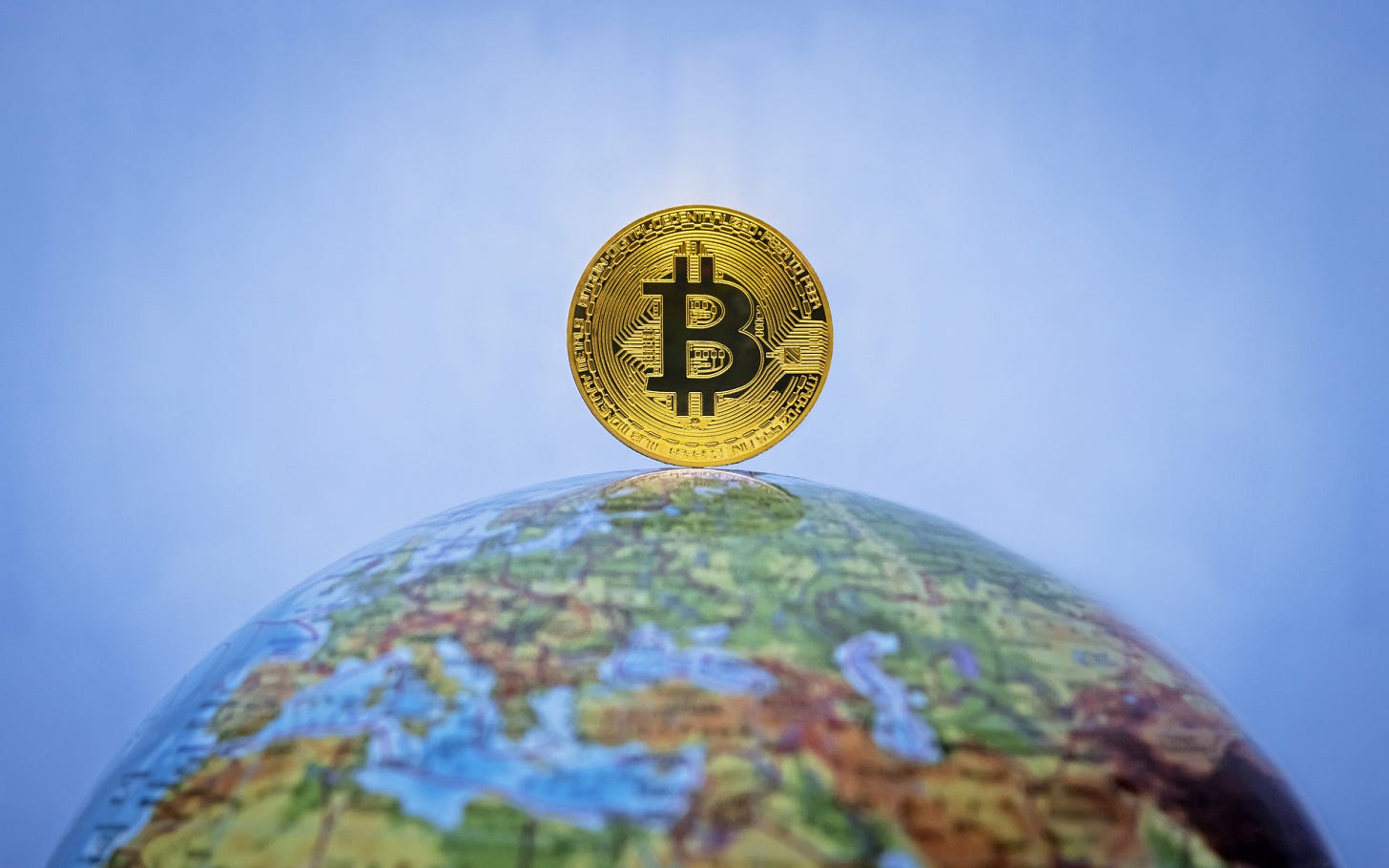

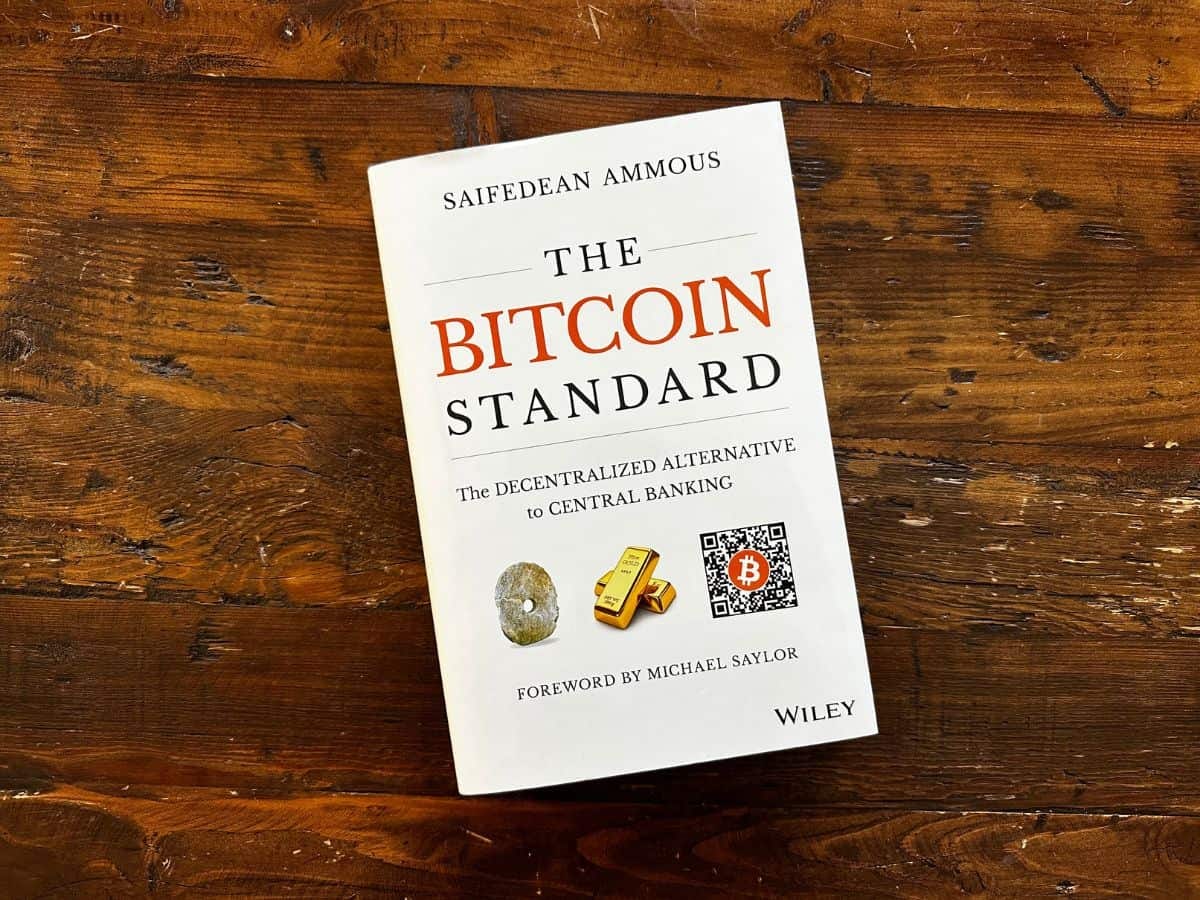

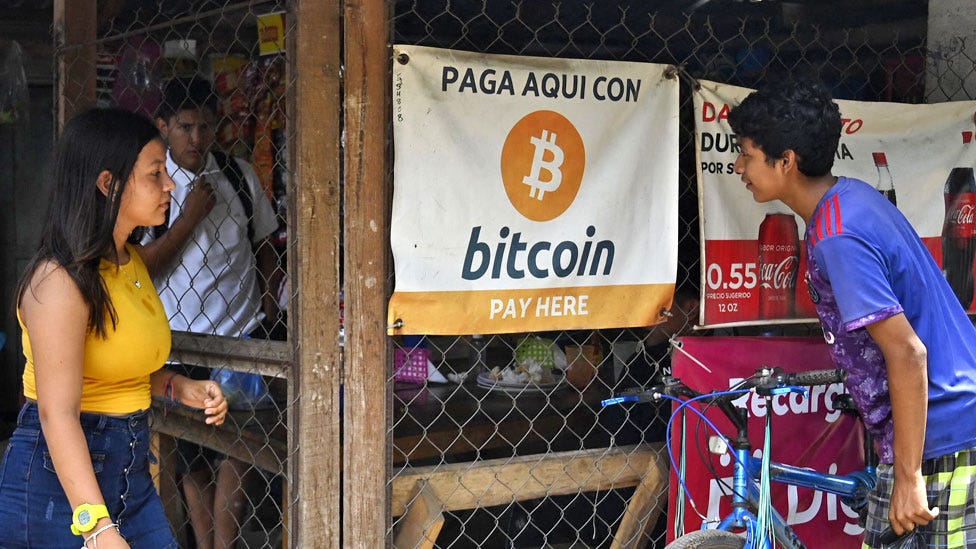
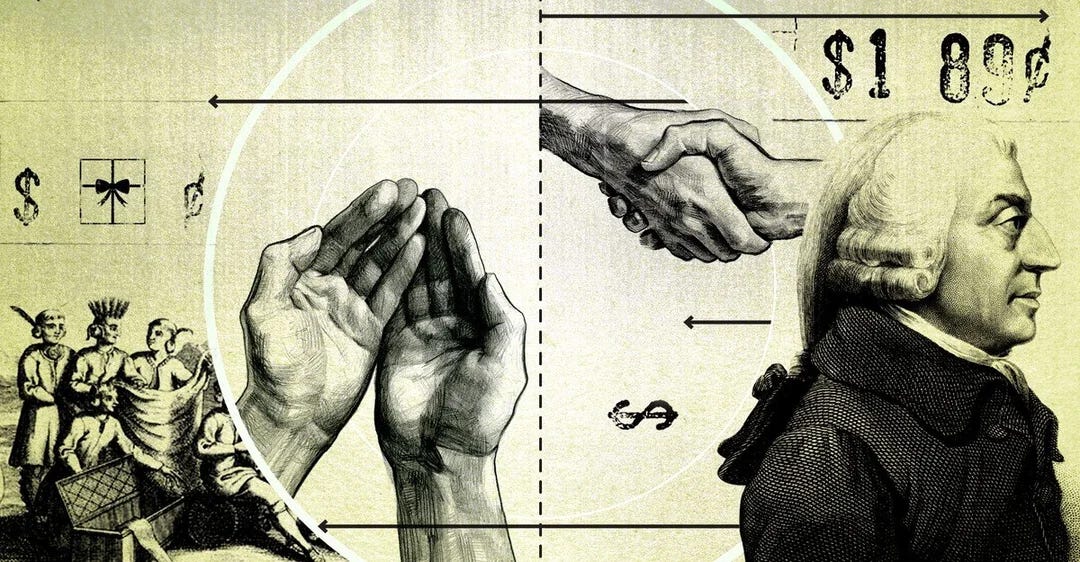
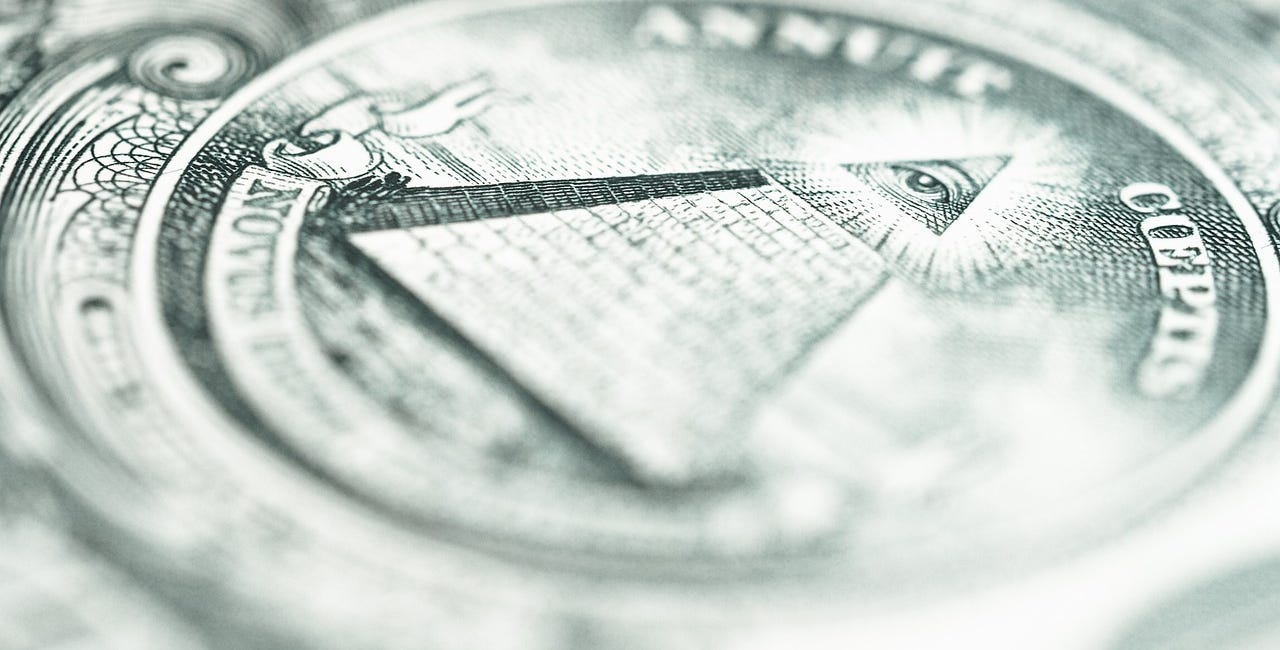
Any discussion of Bitcoin or cryptocurrency in general misses the mark if it does not discuss the Tether scam. The contention is that Tether, which is supposed to be a 1:1 dollar equivalent and which has a market cap of $114 billion and it's daily trading volume is greater than all the other top 10 by market cap coins *combined*, is almost entirely unbacked; it's been used to dramatically inflate the crypto market values much like a central bank. In other words, all of crypto has been infected by the same central bank scam that it purportedly claims to avoid from fiat. It has never passed an audit. As I wrote in a post two years ago:
"Tether, a 13 man company based in the Virgin Isles, claims to have the #5 cash balance in world:
Apple $202B (audited)
Google $169B (audited)
Microsoft $132B (audited)
Amazon $86B (audited)
Tether $83B (not audited)
General Electric $67B (audited)"
Because the crypto market is so lightly traded, sticking many tens of billions of unbacked dollars into the system increases the crypto market’s valuations by many, many times that.
The contention is further that Tether has a krisha (protection) on it because it is such a provably obvious and flimsy scam. The krisha is from the NSA and CIA. What is the purpose for them with crypto, then? To beta test upcoming CBDCs which will be used to reduce humanity's freedom to an extent never seen before in human history as the primary goal, along with secondary objectives of money laundering and funds for black ops, as well as to get themselves and their higher-ups rich.
Globohomo can do whatever they want with crypto via Tether; they own it entirely. Whether it goes up 10x or 100x from here or crashes into nothing is entirely up to them. If you invest, understand it is simply a bet on what globohomo plans to do with it from their smoke-filled deliberations, that’s all.
https://neofeudalreview.substack.com/p/misconceptions-regarding-viewing
Please Keith please do an article on the Reichs Economy under Adolf, many documentaries claim that he printed the new deustch mark based on "hours worked or goods produced" basically a debt economy? And that this system made them extremely prosperous really fast? Please would love your take on this